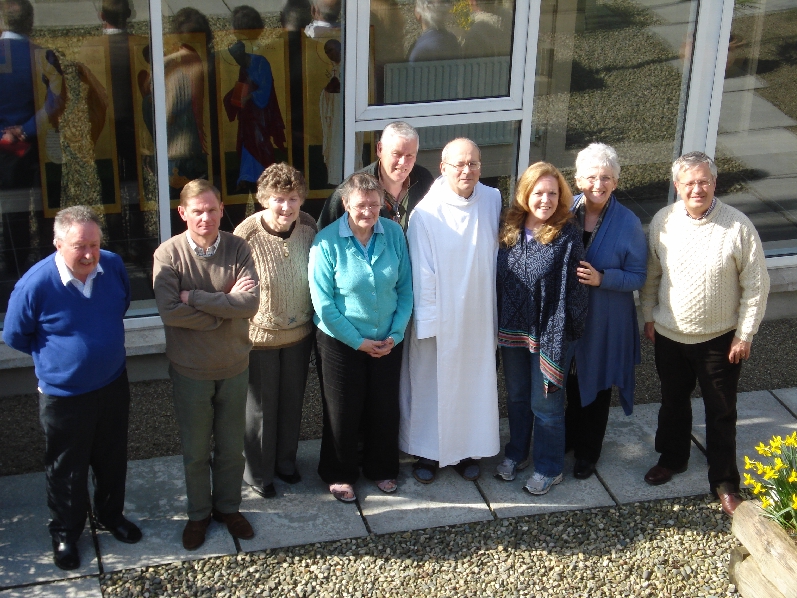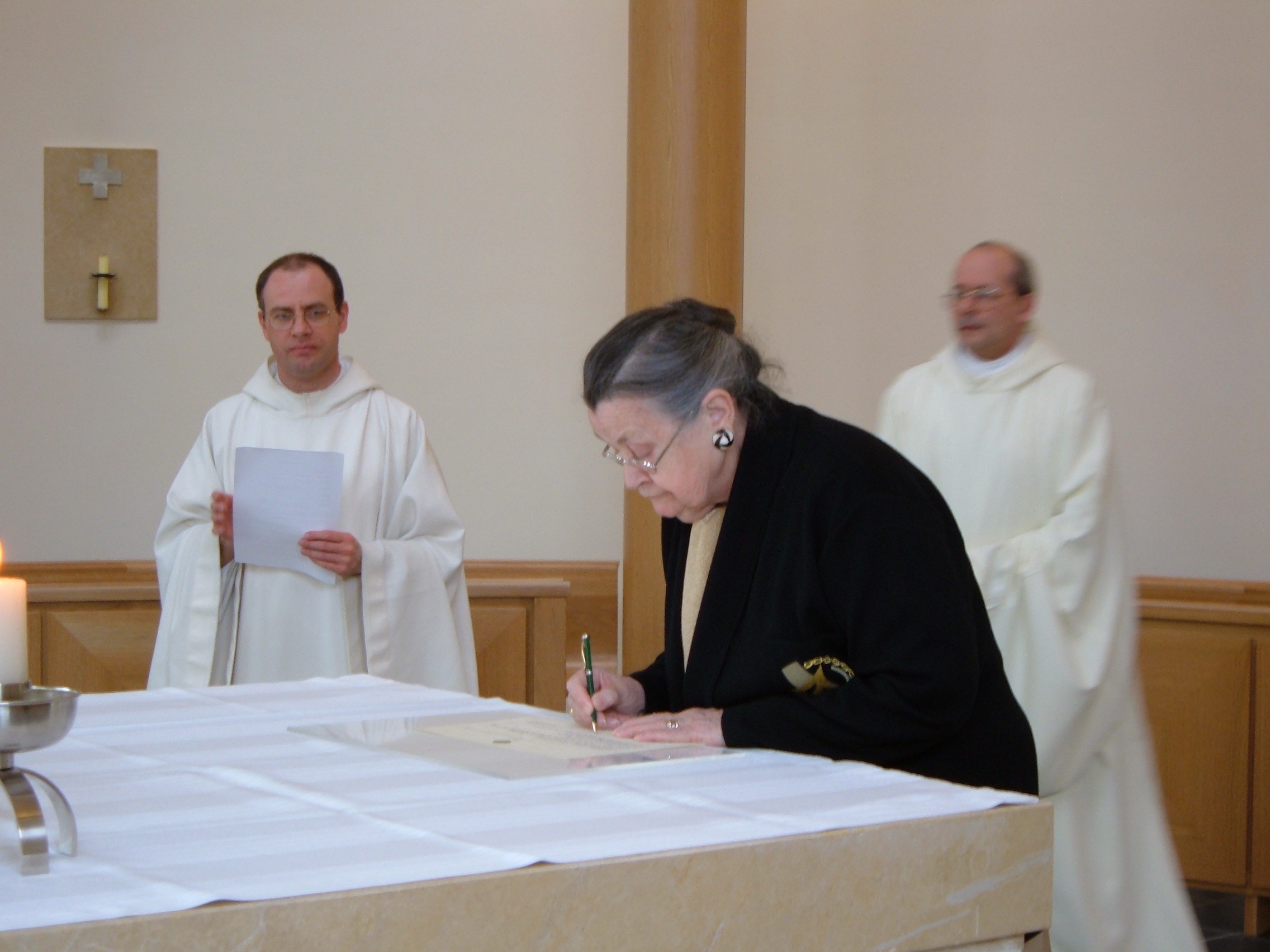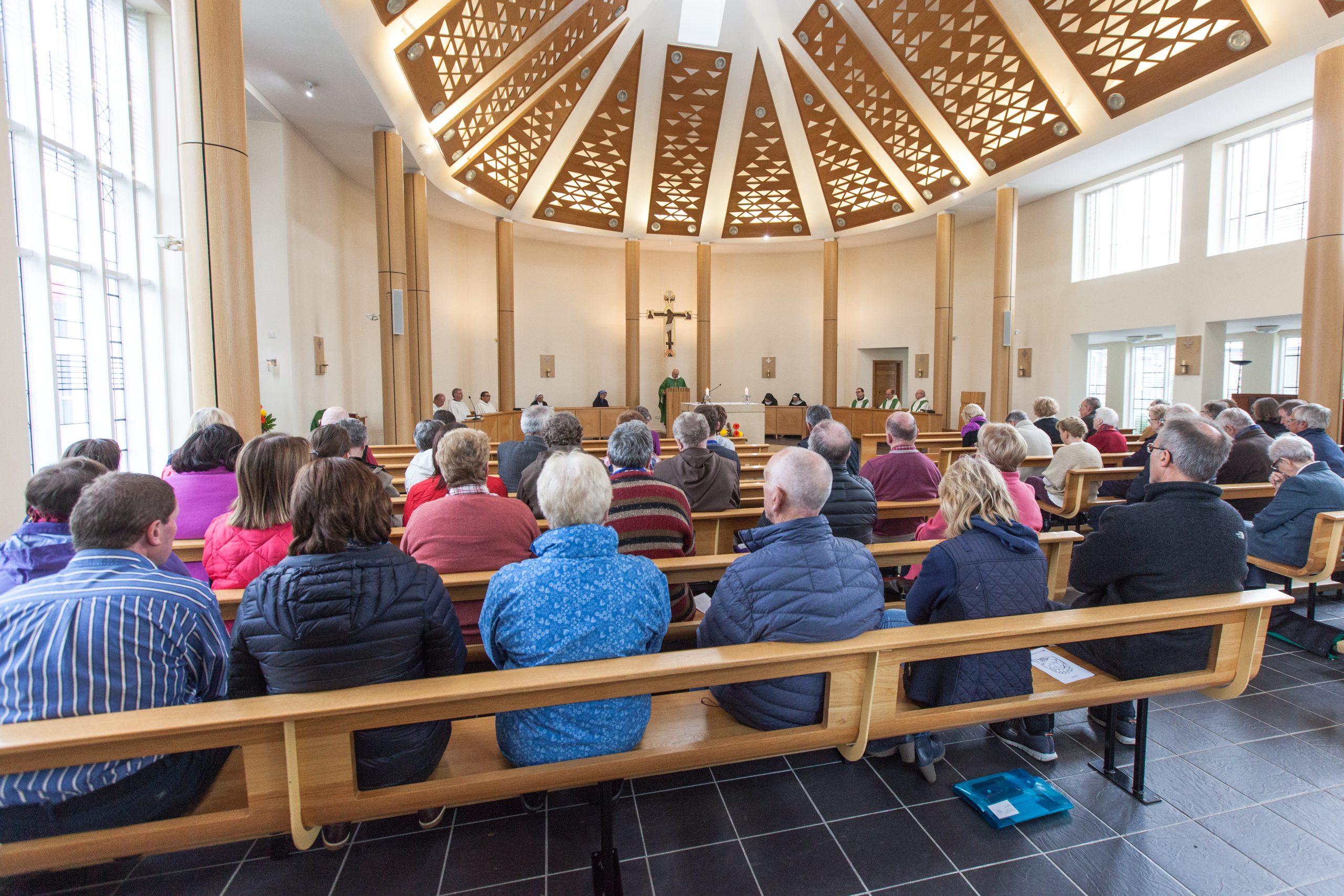About us
Oblates
Oblates
Oblation lived in the communion of Holy Cross Abbey, Rostrevor
The Community’s Perspective
Oblates are men and women who choose to give their lives with Christ according to the call of the gospel and the spirit of the Rule of Saint Benedict: Preferring nothing whatsoever to Christ (RB 4:21 & 72:11)…. There is no greater love than this: to give one’s life (John 15, 13)
They live their offering, each one according to their particular place in the Body of Christ, in their own ecclesial tradition, fully committed to their existing Church allegiance and vocation in life, with all the obligations inherent to these commitments.
They draw strength and inspiration for their lives from the teaching of the Rule of Saint Benedict which they accept as their Little Rule for beginners. (RB 73:8)
Since the Rule points us in the direction of the gospel, the Word of God will be regarded by them as the surest guide for their lives.(RB 73:3)
They are associated with the specific mission of the Abbey of the Holy Cross, given to extending and furthering its ministry of reconciliation and compassion in the world. There where God has placed them, they seek to live a true spirituality of communion which is a characteristic of Holy Cross Abbey’s Olivetan Benedictine tradition.
Like the early Christian community in the Acts of the Apostles they strive to live in a bond of spiritual communion with the monastery and their fellow-oblates faithful to Common worship, the breaking of bread, the reading of the Scriptures and a willingness to share with those in need. (Acts 2:44-47; 4:32-35)
At the very heart of their prayer and desire is Christ’s own incessant intercession and most ardent longing: That all may be one. (John 17:11.21)
To nourish their spiritual life they seek to the extent possible to give them selves to the celebration of the Sacred Liturgy (remembering that nothing is to be preferred to the Work of God – the Divine Office). (RB 43:3)
To this end, in agreement with the Abbot and/or Master of Oblates they strive to follow an adapted form of the Office, praying it in communion with the brethren at the monastery who gather for prayer in church throughout the day and their fellow oblates wherever they may be.
Remembering that the offering of their life is made in communion with Christ who gives Himself to us in the Eucharist they will have at heart to remember and renew their personal offering with Christ regularly at the Eucharistic Table.
Believing the Word of God to be the first source of all Christian spirituality, aided by an on-going practice of Lectio Divina – the prayerful reading of the Sacred Scriptures – they will seek through Scripture based meditation to strengthen their personal relationship with Christ and grow in the love and knowledge of God’s will for their lives. (RB 48:1.10; RB 57)
Their work, whatever it may be, including that of their domestic life they will strive to live wholeheartedly as a service of others so that in all things God may be glorified (RB 57:9) and that they may grow in charity. (RB 35:2)
Just as the monastic tradition has always valued the importance of openness of heart as fundamental to the monk’s response to God’s call, so oblates, living monastic spirituality in the world, will strive to have someone to whom they can open their hearts, seeking spiritual accompaniment. For the most part and to the degree possible they will seek this spiritual accompaniment at Holy Cross Abbey. (RB 4:50)
In order to maintain an actual and effective bond of communion with the monastic community and grow in a sense of mutual belonging, oblates will endeavour to make an annual retreat at the abbey.
The monastic community in its turn engages itself to live not only in an awareness of its oblates’ existence, but in a bond of communion with them, seeing them as part of the extended monastic family – what was called in the Irish monastic tradition the Muintir.
Just as the monks will give spiritual support to the monastery’s oblates, holding them in the community’s prayer, so they count upon the regular prayerful support of their oblates.
To facilitate the bond of communion between the abbey and its oblates the monastic community will explore the possibility of issuing a regular Letter to Oblates and of offering periodic sessions of spiritual formation. This latter might come in the form of ad hoc gatherings.
The purpose of the Rule is to help those who follow it to live the gospel call to conversion (Conversion of one’s way of life), firmly rooted in Christ and the community (Stability), ready to listen to and seek to accomplish God’s will with all their heart (Obedience). The traditional monastic vows, as outlined above, oblates will live to the extent possible in accordance with their particular status and vocation in life. (RB 58)
Saint Benedict gives us a beautiful picture of what life according to his Rule should help us live day after day in his chapter on the Good Zeal Monks Should Foster. (RB 72)
The monastic community, while firmly engaging itself to give its oblates the support they need to live their vocation as Christians there where God has placed them, at the same time, strongly relies upon the support of its oblates, so that it may be helped to remain faithful to God’s calling.





